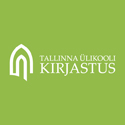Traditsioon ja avangard: lisandusi 1990. aastate kirjandusmuutustele [Tradition and Avant-garde: Some Additions to Literary Changes in the 1990s]
Abstract
1990. aastal ilmus kolm eesti proosateost, mida on hakatud seostama 1990. aastate proosauuendusega – Mati Undi „Öös on asju“, Peeter Sauteri „Indigo“ ja Jaan Unduski „Kuum“. Kuigi eripalgelised teosed, on nad muutunud uurijate käsitlustes ja senises kirjanduskaanonis 1990. aastate kirjandusmurrangu lipulaevadeks. Artikkel analüüsib nende teoste rolli 1990. aastate proosamuutustes ja arutleb, kuidas ja kas need 1990. aastal ilmunud avangardsed proosateosed muutusid järgnevatel kümnenditel eesti kirjandustraditsiooni osaks. Artiklis jõutakse järeldusele, et kirjandustraditsiooni osaks kujunesid Undi ja Sauteri teostest lähtuvad liinid – vastavalt postmodernistlik ja kõnekeelne, vägisõnu kasutav kirjandus. Jaan Unduski keeleliselt külluslik, literatuurne, intertekstuaalne ja erootiline „Kuum“ jäi pärast ilmumist üksi ja eraldiseisvaks ning edasises kirjandustraditsioonis talle järgijaid ei leidunud. Seega muutusid Undi ja Sauteri teosed avangardist traditsiooniks, kuid Unduski romaani „Kuum“ kohta saab öelda, et see ongi jäänud kirjanduslukku püsima uuendusliku ja avangardsena.
Võtmesõnad: 1990. aastad, eesti proosa, kirjandusmuutused, modernism, postmodernism, Mati Unt, Peeter Sauter, Jaan Undusk
------
In 1990 three Estonian novels were published that have been connected to the prose innovation of the 1990s – Things in the Night (Öös on asju) by Mati Unt, Indigo by Peeter Sauter and Hot (Kuum) by Jaan Undusk. All these works differ from each other significantly; however, in various articles, literary histories and Estonian literary canon, they are considered as flagships of the Estonian literary upheaval of the 1990s.
The article analyses the role of these works in the literary changes of the 1990s and discusses if and how these texts became part of the Estonian literary tradition during the 1990s and 2000s.
The article discusses how the trends proceeding from Things in the Night and Indigo became part of the Estonian literary tradition and that several other authors followed their examples. Mati Unt’s Things in the Night was one of the first major representatives of postmodernism in Estonian literature and many writers continued this trend by creating postmodernist works in the 1990s and 2000s. Peeter Sauter’s Indigo was written using everyday colloquial speech, which was a new approach in Estonian literary language. Several younger authors in the 1990s and 2000s followed Sauter’s example, writing in colloquial language and using obscene words in their literary texts.
However, Jaan Undusk’s Hot, which was stylistically rich, significantly
intertextual and explicitly erotic, stood alone following its publication in
1990 and found no followers in the subsequent decades. One reason for this
could be the fact that Undusk did not himself have any further novels published.
The article concludes that of these three innovative novels, Things in the Night and Indigo became part of the Estonian literary tradition, while Jaan Undusk’s Hot, on the other hand, has remained in Estonian literary history as an example of innovative and avant-garde novel.
Keywords: 1990s, Estonian prose, literary changes, modernism, postmodernism, Mati Unt, Peeter Sauter, Jaan Undusk
Full Text:
PDFDOI: https://doi.org/10.22601/PET.2019.04.03
Refbacks
- There are currently no refbacks.
Published by / Kirjastaja:

ISSN 2504-6616 (print/trükis)
ISSN 2504-6624 (online/võrguväljaanne)
